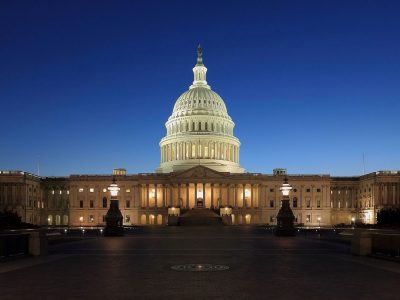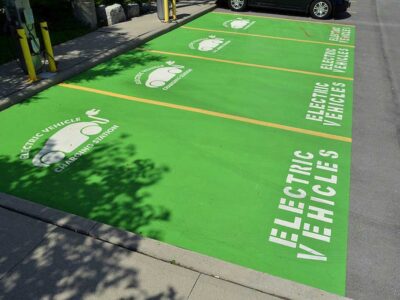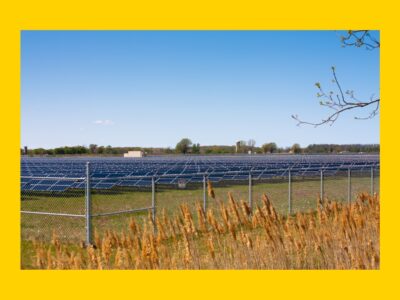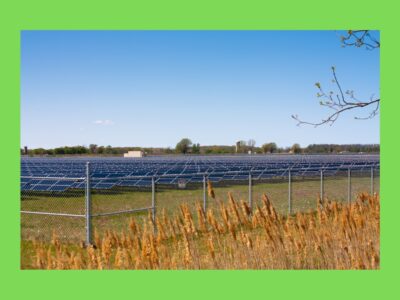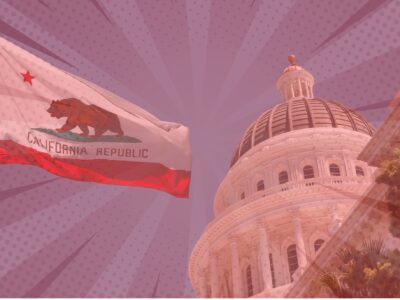Why the 2024 House Races Matter So Much for Energy and Climate Policy
Those races get a lot less attention than elections for the Senate, but they’re equally important.
The House of Representatives has 435 members, which means 435 elections every two years. Due to gerrymandering and political geography, most of those are safe seats. But even today, there are probably thirty or so genuinely contested elections – too many for most of us to pay attention to. Yet, control of the House could make all the difference next year – especially if Trump returns to the White House. This is a companion to my other post today, which surveys the ...
CONTINUE READINGElectric Shared Mobility:
Program Design Elements Can Produce More Equitable, Durable, and Successful Projects
Shared mobility—an umbrella term for any transportation mode shared among multiple passengers—has the potential to accelerate transportation electrification, air quality, and greenhouse gas reduction goals, meet the needs of underserved communities that most lack mobility access, and advance broader mobility equity goals. CLEE’s report, Electric Shared Mobility: California Lessons Learned for Equity in Program Design, highlights examples of electric shared mobility...
CONTINUE READING“Salt Lakes in Crisis: Legal Responses to Ecological Catastrophes”
Upcoming U.C. Davis Law Review Symposium To Provide Interdisciplinary Focus On Threatened Western U.S. Lakes
On Friday, September 20th, the student-run U.C. Davis Law Review will host a most timely conference examining an environmental crisis facing many of the American West's iconic "terminal lakes." That term refers to lakes that have no natural outlet. For many years, protracted droughts and human diversions from freshwater rivers and streams feeding those lakes have combined to reduce lake levels dramatically and significantly increase their salinity (i.e., salt co...
CONTINUE READINGThe Harris-Trump Debate and Environmental Policy
In the ABC News debate, both candidates were asked directly, “What would you do to fight climate change?” Fracking and energy policy got most of the focus.
While abortion and immigration took center stage during last night’s presidential debate in Philadelphia, climate change and energy policy were referenced throughout the more than ninety minutes, in stark contrast to that Biden-Trump debate in June in which climate change was largely relegated to one question. From the very beginning of the debate, Trump attempted to denigrate Harris as a “Marxist” whose progressive policies are at odds with most voters, includ...
CONTINUE READINGCommunity Solar: Local and Individual Benefits
Community solar offers a rich case study for how a diverse range of values can be integrated into the traditionally narrow scope of public utility commission decision-making.
Earlier this week, I published a blog post highlighting some of the systemwide benefits community solar programs can provide and exploring considerations for policy design prioritizing each benefit. Today's post continues that project, this time focusing on several of the benefits community solar can generate at the local or community level and for individual households: financial benefits for participants, reductions in local air pollution, and community ownership a...
CONTINUE READINGCommunity Solar: The Systemwide Benefits
The debates over community solar program design are fascinating sites of struggle over which values should drive decision-making.
Electricity regulation has traditionally been defined by a relatively narrow public interest prerogative: ensuring just and reasonable rates for reliable electric service. The call to decarbonize, however, has injected a new diversity of values into the conversation. Transforming the electric power system to reduce greenhouse gas emissions is opening new opportunities to elevate values like community or public ownership and resource conservation as well. The debates ...
CONTINUE READINGEnvironmental Lawyering Today
If you’d like to defend the environment as a lawyer, you should take a broad view of what that means.
Earthjustice has a great motto: “Because the earth needs a good lawyer.” People tend to equate environmental lawyering with working for Earthjustice or another environmental group like the NRDC. And that’s a great way that lawyers can help the environment. But it’s far from being the only way. In fact, groups like Earthjustice account for only a small fraction of environmental lawyers. Here are some of the alternative paths. First, lawyers work at all le...
CONTINUE READINGShould We Be Upset If Candidates Don’t Provide Concrete Policy Plans?
Policy specifics give me something to write blog posts about. But how much should they matter to voters?
There’s been a drumbeat of criticism of the presidential candidates for their lack of concrete climate proposals. Some of the recent criticism has been of Harris, but you can’t exactly call Trump a policy wonk either. I actually am a policy wonk, so I’d certainly like to see the specifics. But is this something the public should care about? After all, you don’t need specifics to know that Trump and Harris have very different views about climate and energy. ...
CONTINUE READINGEnvironmental Bills at the 10-yard Line
Now that the legislative session has wrapped, the ball is in the Governor’s hands. Here are some of the environmental bills he could sign by September 30.
The California legislative session wrapped up on Saturday, August 31st at midnight, with legislators working until the clock struck twelve. As usual, it was an exciting night to watch. Unlike most years, there seemed to be more of a rush at the end to reach agreement on some of the major issue areas, as well as a back-and-forth with the Governor about starting a special session focused on gas prices, and even more fighting and filibustering efforts than usual. Yes, l...
CONTINUE READINGRightwing Authoritarianism vs the Environment
In the U.S. and elsewhere, rightwing authoritarians oppose climate action. That's not a coincidence.
Project 2025 favors authoritarian presidential rule. It also wants to destroy environmental regulation, especially climate law. That’s not a coincidence. The combination of authoritarianism, extreme conservative ideology, and anti-environmentalism is common globally, not just in U.S. politics. There’s no logical connection between a belief in authoritarian government, upholding traditional hierarchies, and views about protecting the environment or the reality of...
CONTINUE READING



